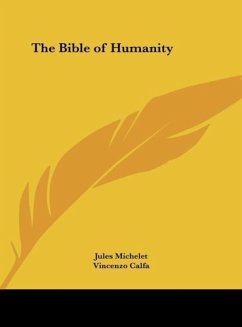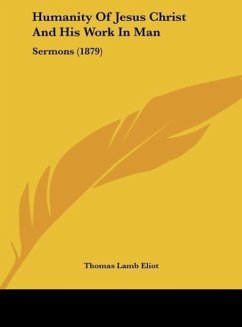1877. This book bears the marks of many centuries of the different conditions of the Jewish nation, as well as of the various states of mind that inspired it. Contents: Part First, Children of the Sun: India; Persia; Greece; Part Second, Children of the Twilight, of the Night, and of the Light Reflecting Against the Darkness: Egypt, death; Syria, Phrygia, enervation; Bacchus-Sabazius, his incarnation, the tyrant; incarnation of Sabazius, military orgies; the Jew, the servant; world-woman; struggle between woman and the stoic, law and grace; triumph of woman; period of universal weakness, Middle Ages; conclusion.
Hinweis: Dieser Artikel kann nur an eine deutsche Lieferadresse ausgeliefert werden.
Hinweis: Dieser Artikel kann nur an eine deutsche Lieferadresse ausgeliefert werden.








